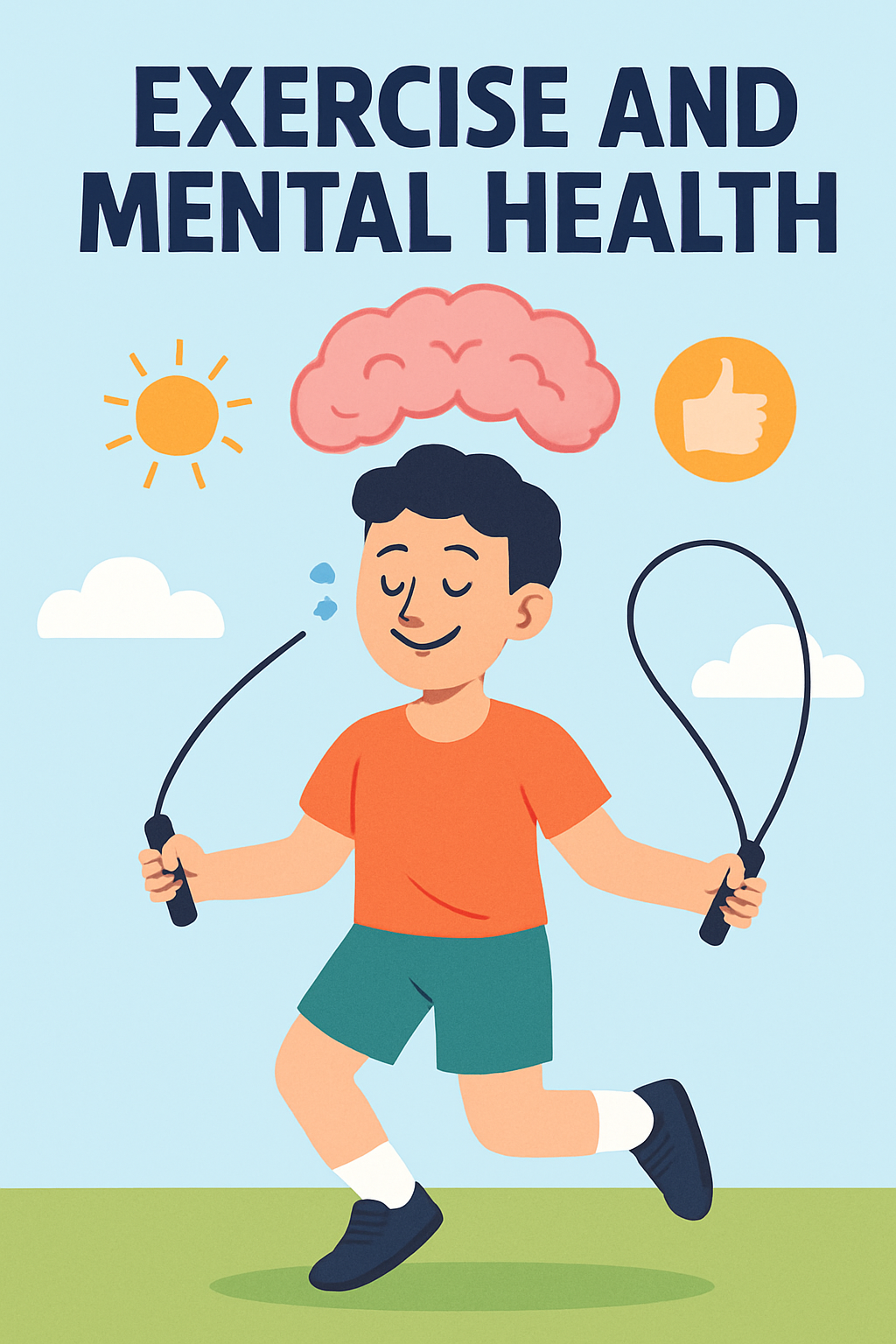In an era where mental health challenges are increasingly prevalent, finding accessible and effective strategies for well-being is paramount. While therapy and medication play crucial roles, one of the most powerful, yet often underutilized, tools for mental health support is regular physical exercise. Far beyond its well-known physical benefits, exercise has a profound impact on our brains and emotional states, serving as a natural mood booster, stress reducer, and cognitive enhancer. Understanding the science behind how movement influences mood can empower individuals to integrate physical activity into their daily routines as a cornerstone of their mental wellness strategy.
The Brain-Boosting Benefits of Exercise
The connection between physical activity and mental well-being is deeply rooted in neurobiology. When we exercise, a cascade of physiological and biochemical changes occurs in the brain that directly impacts mood, cognition, and emotional resilience:
1.Endorphin Release: Often referred to as the body’s natural painkillers, endorphins are neurochemicals that produce feelings of euphoria and well-being. The “runner’s high” is a classic example of endorphin release, but any moderate-to-intense physical activity can trigger this mood-lifting effect [1].
2.Neurotransmitter Regulation: Exercise helps regulate key neurotransmitters such as serotonin, norepinephrine, and dopamine. These chemicals play vital roles in mood, motivation, and pleasure. Imbalances in these neurotransmitters are often associated with depression and anxiety, and exercise can help restore their optimal levels, similar to the action of some antidepressant medications [2].
3.Reduced Stress Hormones: Chronic stress leads to elevated levels of cortisol and adrenaline, which can have detrimental effects on both physical and mental health. Regular exercise acts as a natural stress reliever by reducing the production of these stress hormones and helping the body manage its stress response more effectively [3].
4.Neurogenesis and Brain Plasticity: Physical activity promotes neurogenesis, the growth of new brain cells, particularly in the hippocampus—a brain region critical for memory, learning, and emotional regulation. It also enhances brain plasticity, the brain’s ability to adapt and change, which is crucial for resilience against mental health disorders [4].
5.Improved Sleep Quality: Exercise can significantly improve sleep patterns, helping individuals fall asleep faster and experience deeper, more restorative sleep. Adequate sleep is fundamental for mental health, as sleep deprivation can exacerbate symptoms of anxiety, depression, and irritability [5].
6.Reduced Inflammation: Chronic inflammation has been linked to various mental health conditions, including depression. Exercise has anti-inflammatory effects, which can contribute to improved brain health and mood [6].
Exercise as a Therapeutic Tool for Mental Health Conditions
Beyond general well-being, exercise is increasingly recognized as a valuable therapeutic intervention for specific mental health conditions:
•Depression: Numerous studies have shown that regular exercise can be as effective as medication or psychotherapy for mild to moderate depression. It provides a sense of accomplishment, distracts from negative thoughts, and offers a structured routine, all of which can combat depressive symptoms [7].
•Anxiety Disorders: Exercise is a powerful antidote to anxiety. It burns off excess energy, reduces muscle tension, and helps individuals practice coping with physical sensations that mimic anxiety (like a racing heart), thereby reducing fear responses. It can be particularly beneficial for generalized anxiety disorder, panic disorder, and social anxiety [8].
•Stress Management: As mentioned, exercise directly reduces stress hormones. It also provides a healthy outlet for pent-up energy and frustration, promoting a sense of calm and control.
•ADHD: Physical activity can improve focus, attention, and impulse control in individuals with ADHD, offering a non-pharmacological way to manage symptoms [9].
•PTSD: Exercise, especially mindful movement like yoga, can help individuals with PTSD regulate their nervous system, reduce hyperarousal, and improve emotional processing [10].
Practical Tips for Integrating Exercise into Your Routine
Starting an exercise routine doesn’t require drastic changes or expensive gym memberships. The key is consistency and finding activities you enjoy:
1.Start Small: Begin with manageable goals, such as 10-15 minutes of brisk walking a few times a week, and gradually increase duration and intensity.
2.Find What You Enjoy: Whether it’s dancing, hiking, swimming, cycling, team sports, or gardening, choose activities that you genuinely find pleasurable. This increases the likelihood of sticking with it.
3.Make It a Habit: Schedule exercise into your day like any other important appointment. Consistency is more important than intensity.
4.Incorporate Movement Throughout the Day: Take the stairs instead of the elevator, walk during phone calls, or do some stretches during breaks. Every bit of movement counts.
5.Exercise with a Friend: A workout buddy can provide motivation, accountability, and make exercise more enjoyable.
6.Mindful Movement: Pay attention to how your body feels during exercise. Focus on your breath and the sensations of movement. This can enhance the mood-boosting effects.
7.Listen to Your Body: Rest when needed and avoid overtraining, which can lead to burnout and injury.
Conclusion
The evidence is clear: exercise is not just good for your body; it’s essential for your mind. By understanding the intricate ways in which physical activity impacts brain chemistry, hormone regulation, and overall physiological function, we can appreciate its profound role in promoting mental wellness and aiding in recovery from mental health conditions. Integrating regular movement into your life is a powerful, accessible, and natural strategy to improve mood, reduce stress, enhance cognitive function, and build resilience. Make movement a priority, and experience the transformative power of exercise for a healthier, calmer, and happier mind. For personalized guidance on incorporating exercise into your mental health plan, visit accesshealthservices.org.



